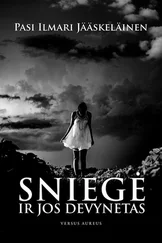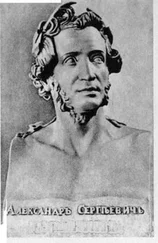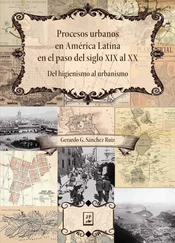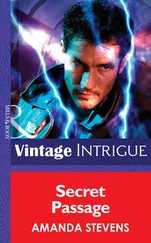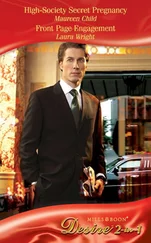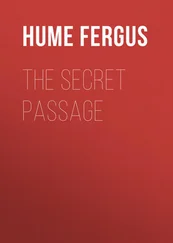Olli returned to his wife’s profile and stared at the blank picture attached to Karri Kultanen’s profile. He had spent two days not daring to click on it. His testicles had gone cold when he thought about what he might see.
When he finally did look, Facebook coolly notified him:
Karri only shares some of his profile information with everyone. If you know Karri, send him a message or add him as a friend.
He wasn’t sure if he was relieved or disappointed. Probably both. If you know Karri … Yes, he knew Karri. Or had known him decades ago. Before the boy disappeared into the secret passages. And he did need all the information he could get. So he made himself move his mouse, and Facebook-friended Karri.
He waited for his former friend to confirm, although he wasn’t sure what would happen next.
After looking at Facebook a little longer, Olli went downstairs, wrapped himself in a blanket, and started watching old movies, because he couldn’t go to sleep. Casablanca, The 400 Blows, The Bridge on the River Kwai . At some point he closed his eyes and let the sound of the film recede behind the hum of sleep. Just before he dozed off, Colonel Saito told the men building the bridge: “ Be happy in your work .”
The next meeting would be at the river. Wait on the bridge at 7 p.m. , Anne’s message said.
When Greta arrives, rush up to her and kiss her. This time you have to shift the friendship to romance! That is what she hopes and expects. Be brave and make the first move. Kiss her in a way that removes all ambiguity. Read the chapter on stolen kisses in A Guide to the Cinematic Life and you’ll know what to do.
THE RAIN WASHED over the river valley, which looked like an old sepia-toned photograph.
Olli stood on the bridge. He thought about his recent dream, and the dedication on the first page of Greta’s book: For the love of my life, from the girl in the pear-print dress . The same message in millions of books sold all over the world, and no one knew that the love of Greta Kara’s life was Olli Suominen, from Jyväskylä. The mystery had even been discussed in women’s magazines.
Olli leant against the railing and watched the footpath that passed under the bridge. Raindrops pattered on his umbrella. He was nervous and anxious. He tried to shake off the feeling the Guide called slow continuum attachment—he had a task to accomplish. It was hard not to think about where his family might be right now and what Aino was thinking and feeling about all this.
Olli lit a cigarette. Over the past few days he had started smoking. Not a lot—usually just two or three cigarettes a day—but he hadn’t smoked at all before. He had stopped in at the publishing house and, on a whim, pinched a cigarette from the pack on Maiju’s desk and lit up when he got outside. It tasted awful and made him cough, but it also calmed his nerves. According to the Guide , smoking could help free you of attachment to the continuum.
A cinematic way of life always has a certain fatalism, and what could be more fatalistic than allowing yourself to enjoy the aesthetics of cigarette smoke?
He focused on smoking.
Olli is playing with the smoke, losing himself in the glowing tip of his cigarette.
That fiery dot is the only thing real in all the grey; everything else is a dream. The smoke mixing with the wind is like a wordless poem. According to A Guide to the Cinematic Life , smoking is, at its core, a lyrical, metaphorical and meditative activity that can deepen the sense of meaningfulness and dispel the sensation of ordinariness. A cinematic life can’t take away pain, but it can make it more aesthetic, make of it a kind of wine of emotion, a music of feeling.
The walking path is between the river and a steep bluff. The ravine is lined with trees and bushes and along the top are houses surrounded by wooden fences. The place is cinematically beautiful. It also has drama—with enough heavy rain the bluff could collapse and send the houses tumbling into the river.
The path is still empty; the only movement is on the bridge. A bicycle whizzes past behind Olli’s back. Pedestrians come and go. Each pair of shoes has its own sound, each set of steps its own rhythm. Gazing over the valley, Olli listens and tries to guess what kind of person each one passing might be. A long-legged man in no hurry. An old person in pain with a walker. A young couple intertwined. A mother with her children, in a rush. A woman in high heels, swinging her hips.
The smell of floral perfume makes Olli turn around. A Veronica Lake copy is coming onto the bridge, headed into town. Maiju?
No. She’s shorter and stockier than Maiju, and she has an angry look on her face.
He sees another woman at the opposite end of the bridge in a beret and trench coat, carrying binoculars. She’s pretending to use them to watch the birds in the trees along the shore, but they’re actually aimed at Olli. He’s been trying not to think about it, but it’s obvious that the Blomrooses have been watching him and Greta.
In any case they’ve been watching Greta closely, no doubt through hired henchmen. Anne Blomroos has virtually unlimited resources. There could be a hundred people in Jyväskylä hired to monitor the progress of the Blomrooses’ mission of atonement. Their reconnaissance must also include analysts collecting kernels of information and formulating predictions of Greta’s behaviour. They have to be getting information somewhere to be able to know where Olli needs to go to run into her.
Olli pretends not to notice the woman. And who knows, she might be an innocent birdwatcher; the spies might be somewhere else, out of sight. He needs to focus on Greta anyway, and forget about other things.
Just as he’s starting to suspect that the Blomrooses’ information was wrong and Greta is somewhere else today, an umbrella with pears printed all over it comes into view from beneath the bridge.
Olli walks towards the downtown end of the bridge and the stairs that lead to the river. He can see the woman better now. It’s Greta, in a dark suit. Olli readies himself. It’s time to enact the Blomrooses’ kissing scene, and finally set this romance in motion.
He’s terrified. Not so much because he is acting against his morals, but because of how much he’s enjoying it. Maybe it’s the influence of M-particles, he thinks, not sure whether he’s serious.
He braces himself to run down the wooden steps. He feels light on his feet.
She’s walking down the path, taking no notice of him. Olli waves and is about to shout her name when someone grabs him by the arm.
“Suominen!…”
Olli turned around and saw three gentlemen from the Jyväskylä Club with suits and umbrellas which he recognized immediately as high-quality merchandise. They were obviously on their way to some occasion, or perhaps coming from one. One of the men coughed and said, “So, Mr Suominen, I assume you’ve paid your club membership?”
The other men chuckled.
Olli was surrounded, the men prodding at him as if he were a horse for sale.
“Well,” a man in a hat with a moustache and a red nose said with a sigh, “we’re all very busy, we all have to make a living—and luckily, for the present company at least, it’s a decent living—but when a man’s been elected to the parish council, he ought to have a place where he can take some time out of his day-to-day grind and spend an evening sitting and talking among equals without the riff-raff jumping on his every word, wouldn’t you agree? So I’m going ask you straight out, right here before the eyes of God and these humble representatives of the Jyväskylä elite: how long do you plan to keep us waiting for you to join us and take your rightful place in the club? Or do we have to call your wife and ask permission for you to come out and play with the other boys?”
Читать дальше

